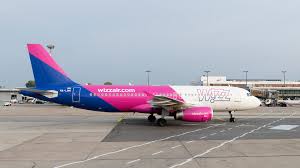
Introduction to Wizz Air
Wizz Air is a Hungarian budget airline that has gained significant traction in the aviation sector since its inception in 2003. Known for its low-fare model, the airline has not only transformed air travel in Europe but has also positioned itself as a key player in the global market. As travel markets recover from the pandemic, Wizz Air’s strategies and routes will be crucial for budget-conscious travellers and the broader aviation industry.
Expansion and New Routes
Recently, Wizz Air announced a series of expansions that include launching several new routes. In 2023, the airline commenced services to cities such as Liège in Belgium and Burgas in Bulgaria, thereby enhancing its network and increasing accessibility to popular destinations. The expansion aligns with Wizz Air’s ongoing mission to provide affordable travel options across Europe and beyond. By focusing on underserved markets, the airline aims to attract more passengers, particularly as travel demand surges post-COVID-19.
Fleet Developments
In addition to route expansions, Wizz Air has been modernising its fleet. The airline recently took delivery of several advanced Airbus A321neo aircraft, which are known for their fuel efficiency and reduced carbon emissions. This investment is not only a commitment to sustainability but also enhances the overall customer experience with more comfort and advanced onboard facilities. Wizz Air has set ambitious goals to reduce its environmental footprint, aiming to achieve net-zero emissions by 2050.
Significant Challenges
Despite its successes, Wizz Air faces challenges, particularly in the context of rising fuel prices and increasing competition from both low-cost carriers and traditional airlines. In 2023, operational costs have soared due to global economic pressures, leading many airlines to rethink their pricing strategies. Additionally, the ongoing geopolitical tensions in Europe could affect flight schedules and profitability, prompting Wizz Air to remain flexible and adaptive in its operations.
Conclusion and Future Outlook
Wizz Air’s continued expansion and modernization efforts reflect its determination to be a leading low-cost carrier in Europe and beyond. As travel continues to rebound, Wizz Air’s focus on affordable pricing and an extensive route network positions it well for future growth. With a commitment to sustainable practices and innovation, Wizz Air is poised to attract a diverse range of travellers, making air travel more accessible and environmentally friendly.
You may also like

Exploring East Grinstead: History and Attractions

Exploring the Wonders of Isla Cangrejo in Tenerife
